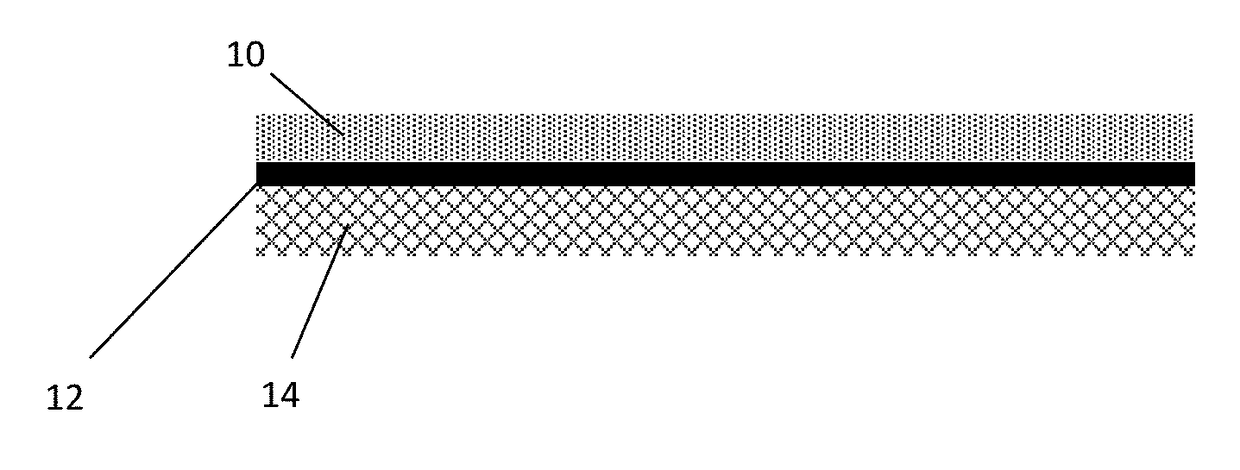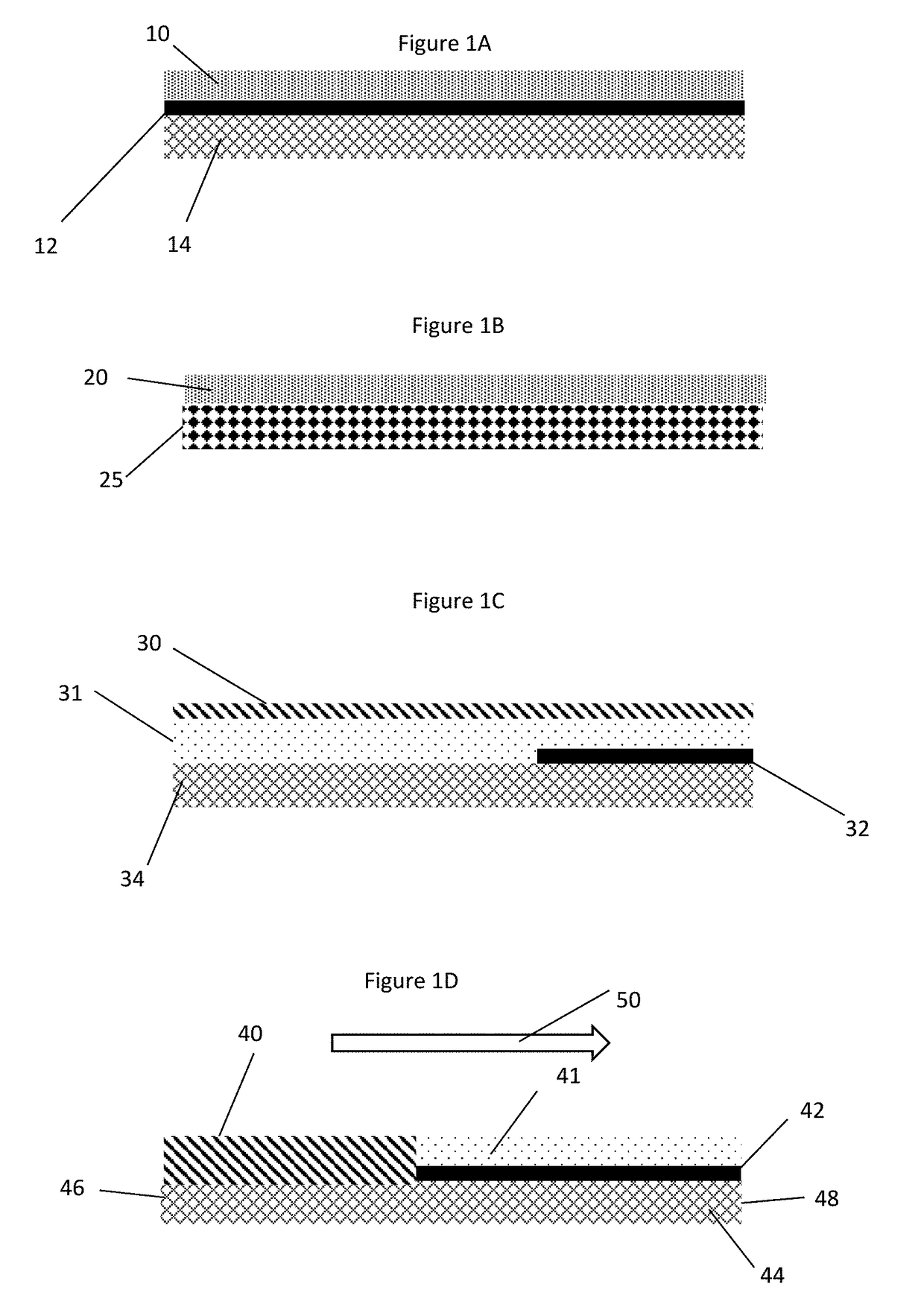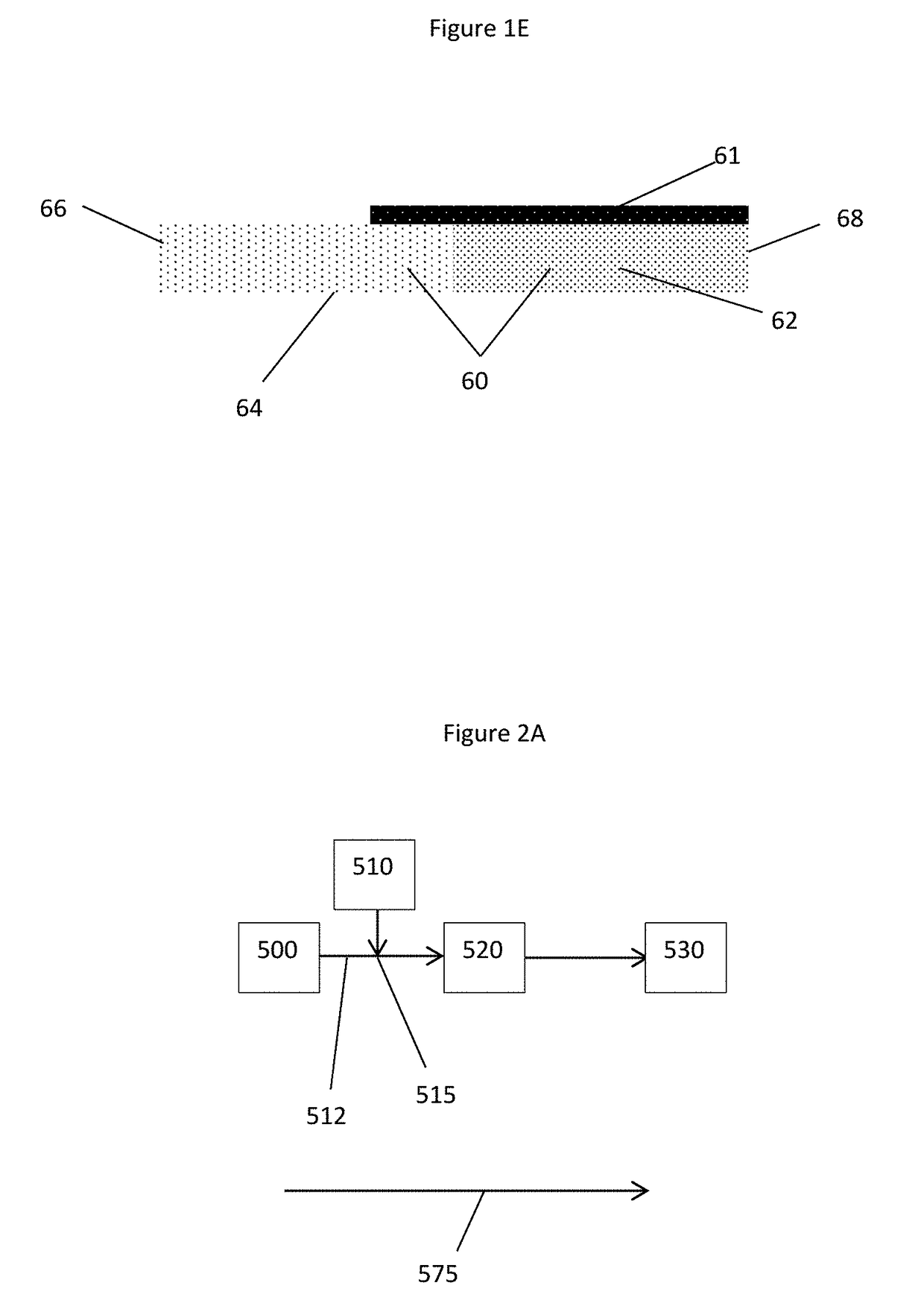Ammonia slip catalyst
a technology of ammonia slip and catalyst, which is applied in the direction of physical/chemical process catalyst, metal/metal-oxide/metal-hydroxide catalyst, and separation process, etc., can solve the problems of undesirable unreacted ammonia that passes through the scr process, particularly problematic, and achieves reduced ammonia slip , the effect of increasing the co and hc oxidative potential of the catalyst and little or no increase in secondary nox
- Summary
- Abstract
- Description
- Claims
- Application Information
AI Technical Summary
Benefits of technology
Problems solved by technology
Method used
Image
Examples
example 1
Preparation of ASC Catalysts Having Pd in Top Layer
[0083]A flow-through honeycomb core (4.66 inches by 3.0 inches, 400 cpsi, 4 mil wall thickness) was coated with a first oxidation catalyst to form a bottom layer and then coated with a second oxidation catalyst / SCR catalyst to form a top layer over the bottom layer.
[0084]The catalyst of the bottom layers were prepared as follows: Add milled gamma alumina washcoat to an appropriate container. The d50 of the gamma alumina was determined to be about 3.2-4.0 μm. Deionized water was mixed into the washcoat using a high shear mixer and succinic acid was added to the washcoat to form a gel. Various amounts of platinum nitrate and optionally palladium nitrate were added to the gel and then the material was mixed to form a slurry. The slurry was applied to the honeycomb core as a bottom catalyst layer and the coated core was dried and calcined. The various amounts of Pt and Pd in the samples are show in Table 1.
[0085]The catalysts of the top...
example 2
Catalyst Performance
[0087]A catalyst sample having a top layer containing a mixture of a vanadium-based SCR catalyst and a Pd oxidation catalyst and a bottom layer containing Pt AMOX catalyst was evaluated for NH3 conversion, CO conversion, and HC conversion. These results were compared to a similar catalyst, but without the Pd oxidation catalyst in the top layer. The catalyst having Pd in the top layer shows significantly better CO and HC conversion performance compared to the catalyst without Pd in the top layer (FIGS. 3 and 4). Surprisingly, the catalyst prepared with and without the Pd top layer show very similar performance in terms of NH3 conversion and NOx outlet. (FIG. 5)
[0088]A catalyst sample having a top layer containing a mixture of a Cu / SAPO-34 SCR catalyst and a Pd oxidation catalyst and a bottom layer containing Pt AMOX catalyst was evaluated for N2 selectivity for NH3 conversion over a wide range of temperatures and also for CO conversion. These results were compared...
PUM
 Login to View More
Login to View More Abstract
Description
Claims
Application Information
 Login to View More
Login to View More - R&D
- Intellectual Property
- Life Sciences
- Materials
- Tech Scout
- Unparalleled Data Quality
- Higher Quality Content
- 60% Fewer Hallucinations
Browse by: Latest US Patents, China's latest patents, Technical Efficacy Thesaurus, Application Domain, Technology Topic, Popular Technical Reports.
© 2025 PatSnap. All rights reserved.Legal|Privacy policy|Modern Slavery Act Transparency Statement|Sitemap|About US| Contact US: help@patsnap.com



